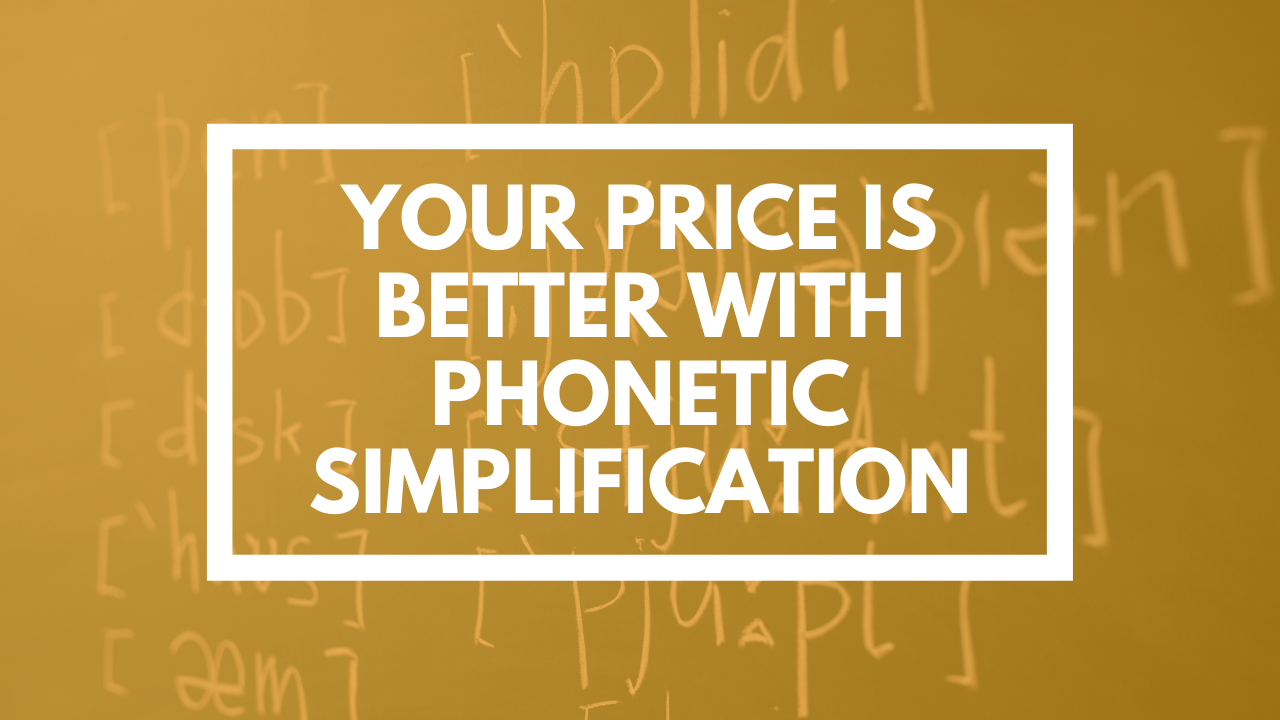
Your Price is Better with Phonetic Simplification
Dec 12, 2016How phonetic simplification can make your prices seem lower
I’d like to share how using a concept called phonetic simplification will get you better prices and results.
One of the things we’re just starting to understand is how irrational the human brain is. And how, once we understand that, we can use it to our advantage. (Some of you may already know Dan Ariely’s book “Predictably Irrational”?)
One key insight I want to share with you today was revealed in July 2012, when Coulter, Choi and Monroe published a research paper in the Journal of Consumer Psychology called “Comma N' cents in pricing: The effects of auditory representation in coding on price magnitude perceptions”.
The more syllables in a price – the higher it seems
In essence, what the authors found was what they describe as “phonetic simplification”. In other words, when we see a price written down – the same as with any number or any word – we read it in our minds. In particular, what their study looked at was whether the number of syllables in a price impacts on our perception of the size of that price.
Fascinatingly, their conclusion was: Yes! Absolutely it does!
Even more interestingly, one of the things they looked at was the use of commas and decimal points. When they asked people how big a number was, they found that the number 1,599, for example – written exactly like that, with a comma – was seen as higher than if it was written without the comma. Similarly, using decimal points – 1,599.00 – to express zero pence or cents made the number seem higher still. In fact, the best result – in the sense that it was seen as the lowest price – was got by omitting the comma altogether and writing: 1599.
That’s because if we use commas and decimal points, we say it in our heads (try it for yourselves) as “one-thousand-five-hundred-and-ninety-nine pounds and zero pence”. While if we take away the decimal points, we say it as one-thousand-five-hundred-and-ninety-nine. But if we omit the comma then we tend to say fifteen-ninety-nine, or fifteen-hundred-and-ninety-nine. And because we’re using less syllables, we see it as being a smaller price.
If you’d like to find out more about phonetic simplification, you can watch a short video about it here.
Time to ditch the cents and pence
The key point for our pricing strategies then is that we can make our prices seem smaller by keeping them simple. By taking out the commas and decimal points, and ditching the pence or cents. (There are some situations where you might want to include them, but that's an idea for another day. It’s called verisimilitude.)
The change might sound insignificant, but research shows that price psychology has a huge impact on how much people are willing to spend.
I hope you’ve found this insight as fascinating as I do. If so, then I’d love to hear your thoughts and experiences in the comments below.
If you found this valuable and would like to learn more about value pricing, I run a free live online training session every month with a topic chosen by you. Attend live and you can ask me any questions you have. Click here to register and I will send you an invitation to the next session.
Wishing you every success on your pricing journey
Mark Wickersham
Chartered Accountant, Public Speaker and Author of Amazon No.1 Best Seller “Effective Pricing for Accountants”

